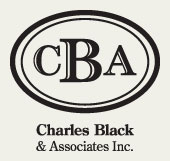WORKSHOP
Industrial Troubleshooting Methodologies and RCA standards
Course Description |
ITM is a 32-hour workshop that explores the principles and application of effective troubleshooting methods. This workshop begins with a review of Safety and upset condition hazards. Participants then explore some of the basic troubleshooting methods used to streamline the problem-solving process including the 7 step troubleshooting methods used and perfected by the Navy Nuclear Technical Training Division. We will explore differential comparison methods and then move into future failure avoidance by examining RCA methods designed to prevent repeat failures. |
Prerequisites |
No course pre-requisites. Course is suitable for all maintenance personnel and leadership roles. |
Outline |
Safety
Basic Troubleshooting Review
Practical Exercises – Simple circuit troubleshooting Critical Thinking Theory
Practical Exercises – (William of Ockham Vs. Sherlock Holmes) Seven Step Method
Practical Exercises – (Complete a Seven Step Process for Failure) Root Cause Analysis
Practical Exercises – (Use the company template for a class member’s example) |
